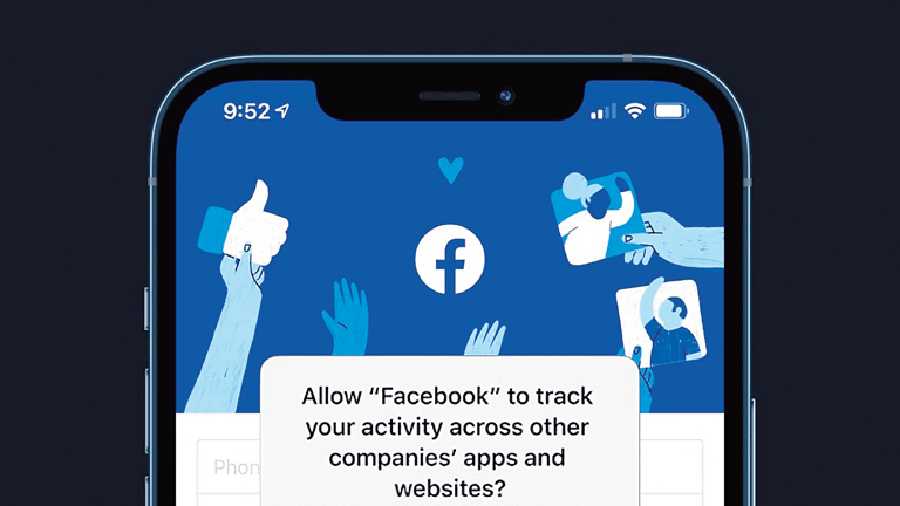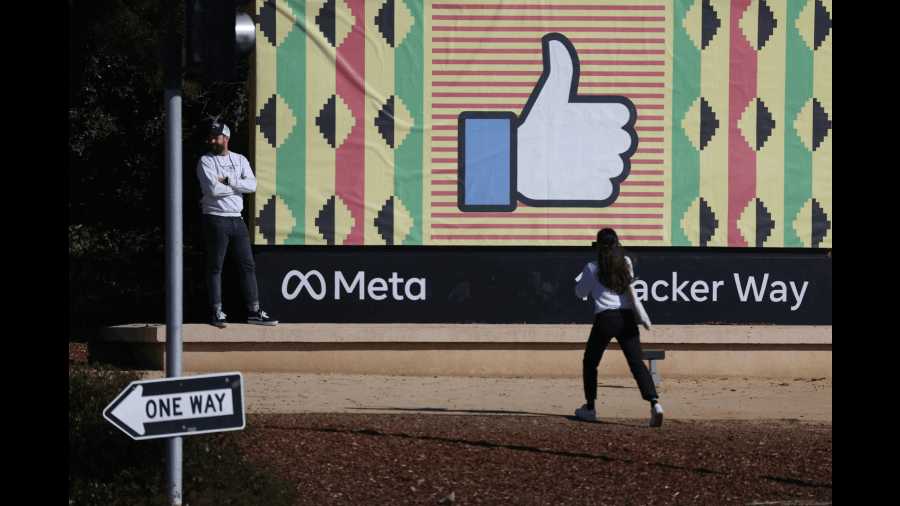Meta Platform’s (formerly Facebook) first-ever decline in active users is a landmark moment in the company’s history. Since its formation 18 years ago, Mark Zuckerberg has never worried about the growth in active user base, powering even through controversial phases and regulatory pressure. The company as a whole continues to grow but the big blue app — Facebook — is just shy of two billion log-ins a day. Though the drop from 1.93 billion to 1.929 billion daily users may not appear a lot to the eye but in terms of revenues and impact it’s a big deal, probably a reflection of the main app’s relevance among young people. What seems to be the problem?

Globally, youngsters are more active on TikTok, owned by the Chinese company ByteDance
Blame TikTok
Despite all the threats, the Chinese-backed app TikTok continues to drive conversations. Be it content creators, trendsetters or advertisers, the love for TikTok is not dwindling globally, even though it remains on the list of banned apps in India.
Zuckerberg himself has pointed to the TikTok issue. During Meta’s fourth-quarter earnings call last week, he said: “People have a lot of choices for how they want to spend their time, and apps like TikTok are growing very quickly.” TikTok has one billion users worldwide and that’s where young consumers are.
Meta-owned Instagram has a feature called Reels to take on the might of TikTok but the point remains, TikTok’s algorithm appears stronger. Reels undoubtedly is reeling in users but it doesn’t make money as effectively as Instagram’s other features, like Stories and the main feed.

Apple’s App Tracking Transparency feature
Blame Apple
Last year, Apple introduced a feature to help users and it is doing its work quite effectively. App Tracking Transparency gives iPhone owners a simple choice — whether they would like to be tracked (by the likes of Facebook) or not. According to data published by analytics company Flurry in December, only 24 per cent of iPhone users around the world have consented to being tracked by advertisers, which means a large section of users are keeping away from personal tracking preferred by advertisers.
When the feature was announced, Facebook didn’t mince its words and a year later, its bottomline is hurting. Meta’s chief financial officer Dave Wehner has said: “We believe the impact of iOS overall as a headwind on our business in 2022 is on the order of $10 billion, so it’s a pretty significant headwind for our business. And we’re seeing that impact in a number of verticals.”
Compounding the problem is the fact that iPhone users are a more lucrative market to Facebook’s advertisers because these are users who tend to spend more money on products and apps served up to them from mobile ads, according to The New York Times.
At the same time, look at Snap, the company behind Snapchat. Nearly five years after going public, Snap is finally profitable and daily active users climbed to 319 million, an increase of 13 million for the second quarter in a row, despite facing the same App Tracking Transparency issue.
In a keynote delivered at the 2021 Computers, Privacy and Data Protection conference, Apple CEO Tim Cook had said: “The fact is that an interconnected ecosystem of companies and data brokers, of purveyors of fake news and peddlers of division, of trackers and hucksters just looking to make a quick buck, is more present in our lives than it has ever been. And it has never been so clear how it degrades our fundamental right to privacy first, and our social fabric by consequence.”

Mark Zuckerberg is spending big bucks on the metaverse
Blame metaverse (sort of)
Telling a farmer that crypto is the future is not very different from telling the average Facebook or Instagram user that the metaverse will be big sometime in the future and that is why the name of the parent company has been changed to Meta Platforms. Perhaps metaverse will be big, perhaps it will go poof. Much of metavese is a theoretical concept.
According to reports, the company plans to spend at least $10 billion this year on Facebook Reality Labs, its metaverse division, tasked with creating AR and VR hardware, software, and content. And Zuckerberg expects to spend even more in the future.
What about returns? Nobody knows. Virtual reality is still niche and though there are talks of Apple introducing VR headset sometime in the future, nobody knows when. Are investors and users willing to have enough patience with a technology that’s still nascent?
Blame regulators
Big tech and antitrust cases are in the news. Meta is in the eye of several investigations, including from a “newly aggressive Federal Trade Commission and multiple state attorneys general”, into whether it acted in an anti-competitive manner. Zuckerberg says his company is not a monopoly because there are the likes of TikTok. When Meta acquired Instagram and WhatsApp there was little in the way of scrutiny but that has changed.
Blame past failures
In 2013, Zuckerberg foresaw the need to connect more people before user growth begins to slow globally. He came up with a plan to connect “the next 5 billion” by offering a limited, Facebook-centric version of the Internet free to the world’s poor. Called internet.org, and later rebranded as Free Basics, it fell short in many markets. The company’s growth continued globally until now. The man is a maverick at overhauling features to set products on the right track, like it had done with the news feed algorithm in the past to prioritise engagement and make users spend more time on the app. There’s no reason why he can’t make change happen again.











